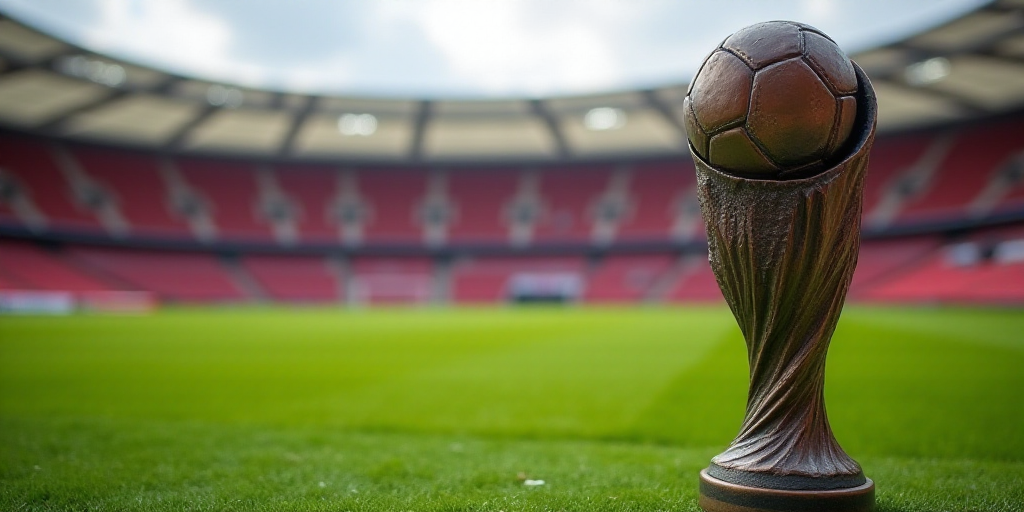Introduction to the UEFA Champions League
The UEFA Champions League, a globally recognized brand, boasts over 1,000 million followers on its official social media platforms and an audience exceeding 140 million in the last two finals, according to international consultancy PMPR Excellence.
Shifting Strategy: More Games and Fairer Competition
Starting the previous season, the Champions League adopted a new strategy to increase the number of games and ensure fairer competition for lesser-known teams. This change resulted in market expansion.
Expert Analysis
Ricardo López Si, a sports and culture journalist and editor of Sports Illustrated México, explains to El Economista: “The logic behind the new format isn’t about democratizing football or bringing it to previously inaccessible places, but rather an obsession with opening new markets and generating more resources.”
Champions League History and Recent Changes
The Champions League, originally known as the European Cup and established in 1955, underwent a significant rebranding in 1992 when it was renamed the Champions League.
The 2024-25 season marked another turning point, with the number of participants increasing from 32 to 36 and replacing the group stage with a league format of at least eight games (four home, four away) for each team.
The number of games per edition rose from 125 to 189, with 144 single-leg matches compared to the previous group stage requiring at least two matches against the same opponents. The preceding season also set a record for the most goals in the first round, averaging 3.26 per game, surpassing 3.21 in the 2019-2020 season.
Economic Impact
Each team is guaranteed €18.6 million just for participating in the league phase, a 19% increase from the last edition with the previous format, where each participant secured €15.6 million.
UEFA also introduced a bonus system in the initial phase with the new format, starting at €275,000 and potentially reaching up to €9.9 million for the top team.
New Market Participants
One of the most notable changes is the inclusion of teams from less prominent territories. For instance, Kazakhstan’s Kairat from Almaty, closer to Asia than Europe, is participating this season.
“Audiences are becoming more receptive to heartwarming stories. A team from Almaty, 300 kilometers from the Chinese border, hosting Real Madrid is not just a big deal for Kazakhstan but the entire Central Asian region (…) The commercialization of football is the only tangible, real goal,” describes the expert.
Three other teams are debuting this season: Cyprus’s Pafos, Belgium’s Union Saint-Gilloise, and Norway’s Bodo/Glimt, which is part of the Arctic Circle, adding to their narrative.
Balancing Romantic Narratives and Competitive Dynamics
“The challenge is for these heartwarming stories to not only add an exotic flavor to the Champions League but also integrate new actors into the competitive dynamics. It seems somewhat contradictory for Europe to embrace football’s supposed democratizing cloak while neglecting to strengthen its mid-tier and lower-tier teams, focusing instead on mega-projects,” notes the specialist.
Sixteen countries, including Turkey, Azerbaijan, Greece, and Denmark, have at least one representative in the 2025-26 league phase.
Impact on Lesser-Known Teams
The new format allows teams from these territories to host ‘big’ clubs. For example, Bodo/Glimt will face Juventus, while Pafos will host Bayern Munich.
These teams have already secured a significant economic reward for their participation, anticipating substantial impact on their local economies when it’s their turn to host matches. Market exposure is guaranteed, but the football quality remains uncertain.
In the previous season, only Belgium’s Club Brugge and the Netherlands’ Feyenoord from non-Big Five European leagues managed to reach at least the round of 16.
Upcoming Season
The league phase of the Champions League will take place from September 16 to January 28, featuring eight matches—two more than the previous format—keeping all participating territories engaged for at least an additional month in 2026.
Paris Saint-Germain (PSG) is the defending champion, while Chelsea aims to follow its recent triumph in the FIFA Club World Cup. Other usual contenders include Real Madrid, Barcelona, Bayern Munich, and Manchester City.






